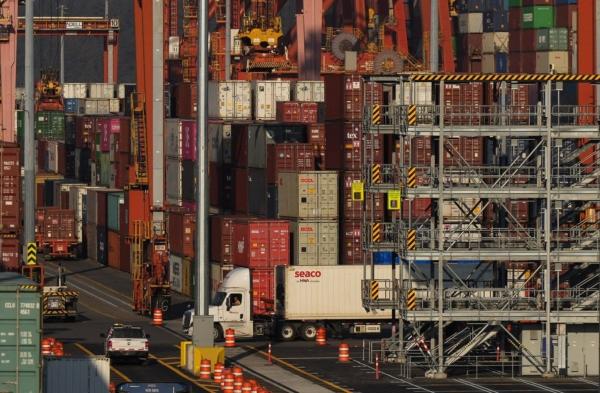For prairie farmers like Bill Prybylski, the strike at ports in B.C. is frustrating.
While the strike, which entered its fourth day Tuesday, is not expected to affect bulk shipments of grains—like loading up a freighter with wheat—it will still affect a variety of other agricultural products, such as specialty crops like mustard and peas being sent overseas in shipping containers.





